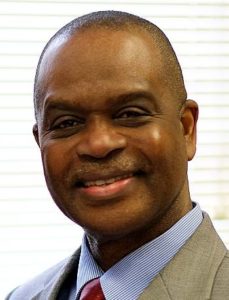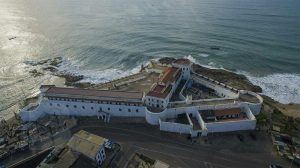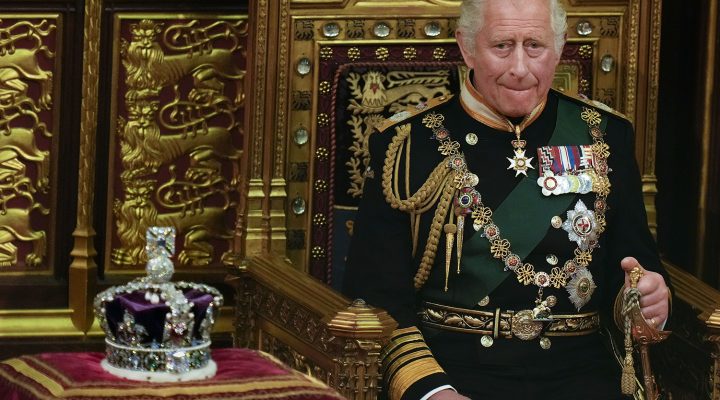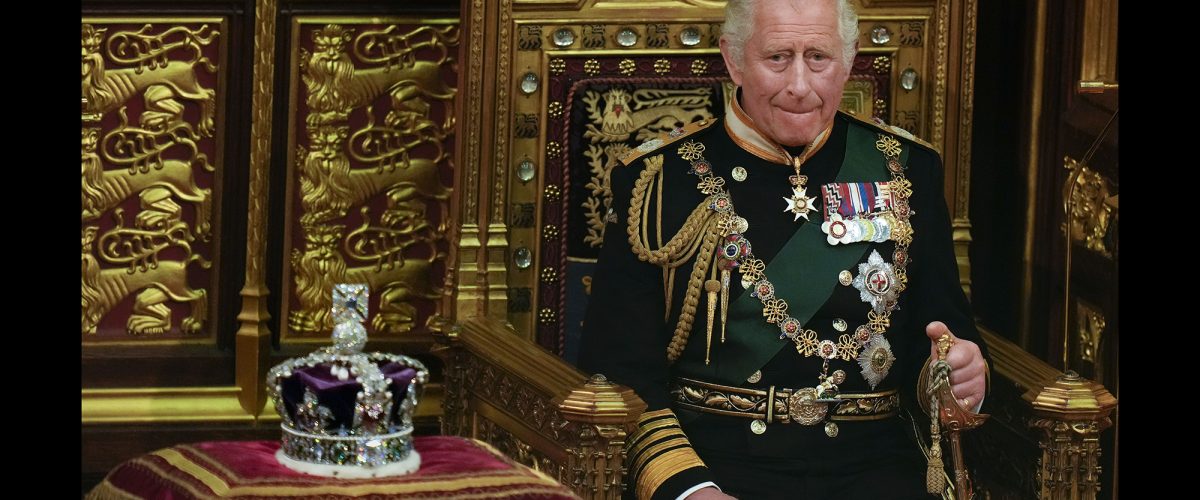As soon as the dust settles and Charles realizes he really is king, among the first things he should do is repudiate the moniker “Defender of the Faith.” He probably wil not, but people bearing prophetic messages don’t keep silent just because they think they might be ignored.
Here are three reasons the new king should abandon the term.
First, the definite article (“the”) qualifying the word, Defender, is unfortunate. If his majesty wishes to defend faith, he is welcome to talk about defending his personal faith — not the faith of a nation or of a monarchy that rules that nation, or a faith commandeered to be national because a monarch in 1534 made it so.

Michael Friday
National faith is always problematic; and even though the United Kingdom cannot be credibly accused of being a theocracy, its history shows how white England’s religion — not unlike white America’s — enabled the sordid abuses of political power, imperial power and colonial power.
If Charles wishes to keep the idea of “defender” in his title, relating it to faith, he should remove the article altogether, thereby pledging to be a defender of faith, per se — meaning he shall defend the rights of people everywhere and anywhere to hold any faith to which they personally subscribe, beginning with the variety of faiths that now exist in the United Kingdom and in the commonwealth.
He should then repudiate both the notions and realities of the past: First, that England possesses a church (“The Church of England”), and second, that the head (“supreme governor”) of the church of England is the monarch.
Second, “Defender of the Faith” unnecessarily creates the idea that the Christian faith or any iteration thereof needs defense. Yes, there are those in the faith who feel called to the practice of apologetics. There certainly is a place for that personally, perhaps even denominationally, but certainly not nationally. Nor should defense of the faith be a task given to a head of state — particularly a secular state — in practice and reality.
Third, this title unnecessarily subjects the faith to an interpretation that includes militarization. At least, the title justifies militant conquest over others considered to be “heathen.” In fact, history bears record that the “faith” the British monarch “defended” was outworked with violence numerous times since 1534, especially during the centuries of colonization, slavery and imperialism.
True, England’s approach to colonization, utilizing religion as an oppressive tool, was not as sordid as, say the Spanish on Hispaniola — that dastardly approach that left history with the name and fame of Bartolome de las Casas as a heroic reformer and true defender of the integrity of his faith and his fellow human beings, instead of the then brutal Spanish version of “the faith.”
Nevertheless, Britain’s version of the faith, proudly defended by the sovereign, oversaw the deadly slave trade industry, the trafficking of human beings and untold barbarous atrocities including genocide in India, Africa, the Caribbean and elsewhere.
“There is no way the British and other imperialist traffickers (who thought they were worshipers) in that chapel would not have heard the cries of the humans in that dungeon.”
No proof of this is starker than the Cape Coast Castle in Elmina, Ghana. A chapel — presumably for the worship of those of “the faith” — sits near the dungeon where Black, kidnapped, traded and trafficked humans were warehoused in squalid and inhumane conditions as they awaited the departure of the ships that would take them across the Atlantic. There is no way the British and other imperialist traffickers (who thought they were worshipers) in that chapel would not have heard the cries of the humans in that dungeon. They had to; and neither humanity nor “the faith” moved them to grace and justice.

Cape Coast Castle
I submit that even this is the least of British monstrosities and sheer diabolism perpetrated in that era, in the name of the monarch and in the name of “the faith.”
The heinousness of those “faithful” British militants (a heinousness easily transmitted, in the 17th century to white American religion through both the Britons and other Europeans who became Americans) ensured that the gruesome labor conditions applied to the enslaved in the British colonies delivered the agricultural and mineral resources that enriched Britain and its monarchy. Those depravities guaranteed that minerals and precious metals from Africa, tea and muslin from India, and sugar from the Caribbean produced by slave labor, left those lands, transferring massive wealth to England, while underdeveloping and plundering the Caribbean, Africa and India, and marginalizing the indigenous peoples of Australia and New Zealand.
Perhaps some authoritative church entity — national, international or perhaps even Baptist! — might, if they ever had audience with His Majesty King Charles III, inveigh upon him that it is time to retire the term “Defender of the Faith” and, in the spirit of true faith, confess the sins of the sordid history overseen by that faith and its “defenders.”
“Both confession and reparations are cornerstones of the faith the monarchy says it defends.”
Perhaps I dream; but what if the Spirit of the true faith moved in King Charles, disallowing him to reject the suggestion, and thereafter, inspire and motivate his kingdom, nation and the British Parliament to embrace the principle and then, responsibility of reparations that always follow true repentance, as exemplified in Zacchaeus? After all, both confession and reparations are cornerstones of the faith the monarchy says it defends.
If King Charles must become defender of something, this would make him Defender of Humanity, Defender of Human Dignity, even Defender of Justice. But all that may just be a grade too steep for the new monarch to climb. It is very good that the king, when he was Prince of Wales, not only extolled the virtues of environmental health, but also led initiatives to combat climate change. As a lover of the environment, King Charles III might still serve the world well, were he to at least become Defender of the Earth. Either way, the old moniker, Defender of the Faith, needs to go.
Michael P. Friday serves as president of the American Baptist Churches of Connecticut and interim pastor of the Noank Baptist Church. He is a leadership strategist and consultant, with former pastorates in Trinidad and Tobago, Jamaica, Nebraska, Pennsylvania and New York. He is author of the book And Lead Us Not Into Dysfunction: The Good, The Bad, And The Ugly of Church Organizations And Their Leaders.
Related articles:
The monarchy Christians | Opinion by Rodney Kennedy
An angry tweet about colonialism while others pay tribute to Queen Elizabeth
Womanhood, white Christian nationalism and Queen Elizabeth | Opinion by Greg Garrett


